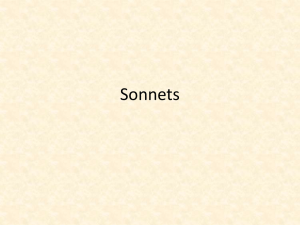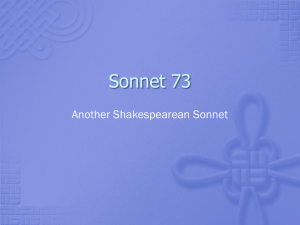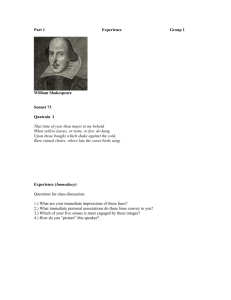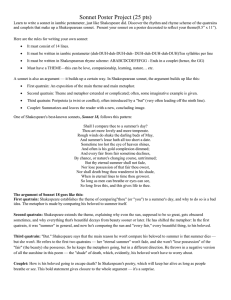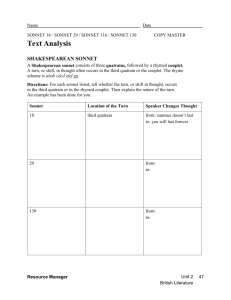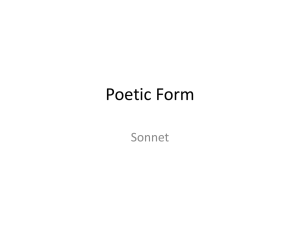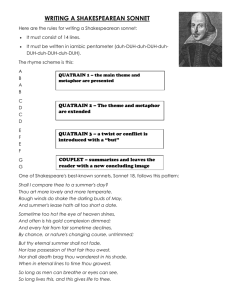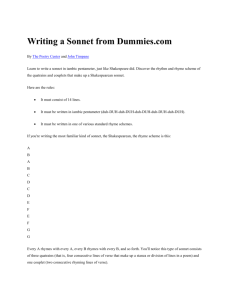Sonnet Assignment:
advertisement
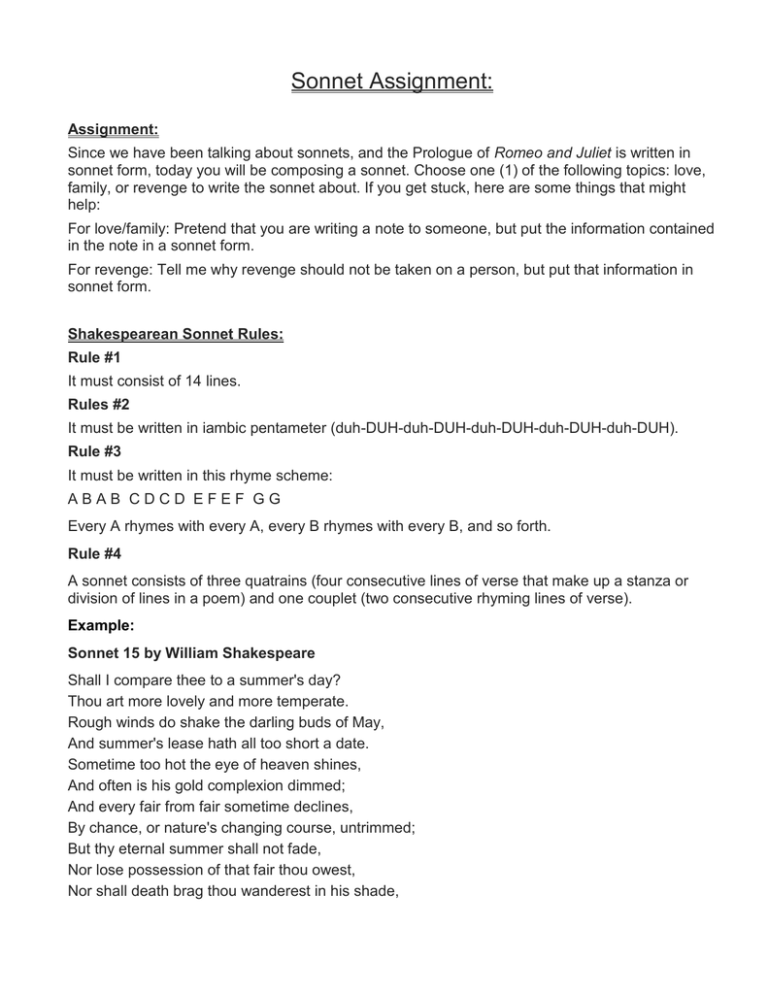
Sonnet Assignment: Assignment: Since we have been talking about sonnets, and the Prologue of Romeo and Juliet is written in sonnet form, today you will be composing a sonnet. Choose one (1) of the following topics: love, family, or revenge to write the sonnet about. If you get stuck, here are some things that might help: For love/family: Pretend that you are writing a note to someone, but put the information contained in the note in a sonnet form. For revenge: Tell me why revenge should not be taken on a person, but put that information in sonnet form. Shakespearean Sonnet Rules: Rule #1 It must consist of 14 lines. Rules #2 It must be written in iambic pentameter (duh-DUH-duh-DUH-duh-DUH-duh-DUH-duh-DUH). Rule #3 It must be written in this rhyme scheme: ABAB CDCD EFEF GG Every A rhymes with every A, every B rhymes with every B, and so forth. Rule #4 A sonnet consists of three quatrains (four consecutive lines of verse that make up a stanza or division of lines in a poem) and one couplet (two consecutive rhyming lines of verse). Example: Sonnet 15 by William Shakespeare Shall I compare thee to a summer's day? Thou art more lovely and more temperate. Rough winds do shake the darling buds of May, And summer's lease hath all too short a date. Sometime too hot the eye of heaven shines, And often is his gold complexion dimmed; And every fair from fair sometime declines, By chance, or nature's changing course, untrimmed; But thy eternal summer shall not fade, Nor lose possession of that fair thou owest, Nor shall death brag thou wanderest in his shade, When in eternal lines to time thou growest. So long as men can breathe or eyes can see, So long lives this, and this gives life to thee. The argument of Sonnet 18 goes like this: • First quatrain: Shakespeare establishes the theme of comparing "thou" (or "you") to a summer's day, and why to do so is a bad idea. The metaphor is made by comparing his beloved to summer itself. • Second quatrain: Shakespeare extends the theme, explaining why even the sun, supposed to be so great, gets obscured sometimes, and why everything that's beautiful decays from beauty sooner or later. He has shifted the metaphor: In the first quatrain, it was "summer" in general, and now he's comparing the sun and "every fair," every beautiful thing, to his beloved. • Third quatrain: Here the argument takes a big left turn with the familiar "But." Shakespeare says that the main reason he won't compare his beloved to summer is that summer dies — but she won't. He refers to the first two quatrains — her "eternal summer" won't fade, and she won't "lose possession" of the "fair" (the beauty) she possesses. So he keeps the metaphors going, but in a different direction. And for good measure, he throws in a negative version of all the sunshine in this poem — the "shade" of death, which, evidently, his beloved won't have to worry about. • Couplet: How is his beloved going to escape death? In Shakespeare's poetry, which will keep her alive as long as people breathe or see. This bold statement gives closure to the whole argument — it's a surprise. Sonnet Assignment: Scoring Rubric 1. Did you complete a Shakespearean sonnet that was either about love, family, or revenge? Did it contain 14 lines and have the correct rhyme scheme? 15 points 2. How much effort did you put into the sonnet? Did you take some time to make the sonnet flow smoothly? Total = 10 points 25 points
